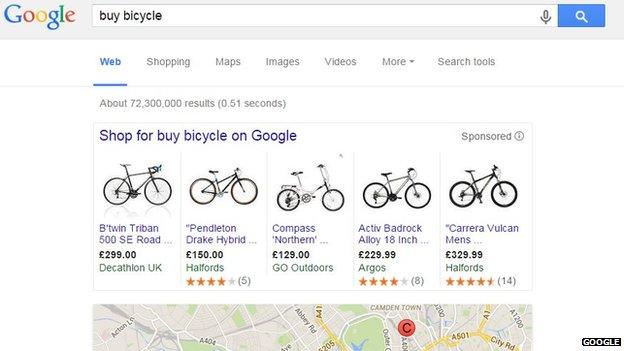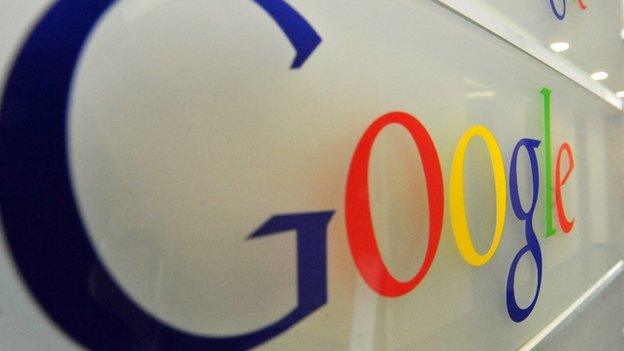Google fights EU price comparison case
- Published

Price comparison site rivals have complained about the priority Google gives to its own shopping service
Google has again rejected the EU's objections to how it displays shopping links in its search results.
It said the investigation following complaints from price comparison websites had failed to understand the "reality" of online shopping.
It blamed a drop in traffic for price comparison sites on Amazon and others.
Europe's competition commissioner first accused the firm of abusing its dominance in search in April 2015 and made further claims in July 2016.
Prominence
Google's shopping results appear as a box of images and links displayed alongside other search results.
In 2015, the EU competition commissioner claimed these results gave prominence to Google's own services and advertisements, to the detriment of price comparison websites, which may have lost visitors.
Google responded that the EU had failed to take into account the significance of online shopping giants such as Amazon, which it said also competed against price comparison websites.
In its updated claim, the EU said Amazon could not be considered a rival to price comparison websites because it sometimes paid such sites to be included in search results.
Google's latest response says websites such as Amazon get a "tiny fraction" of their visitors from price comparison websites, "hardly enough to support the idea that they don't compete" with one another.
It also pointed out that Amazon provides its own price comparison tools for its customers.
"The commission's revised case still rests on a theory that just doesn't fit the reality of how most people shop online," the company said in a blog, external.
"It's not surprising that when Amazon and other new competitors arrived in European countries, traffic to sites offering only price comparison went down."
The company said it would "look forward" to continuing discussions with the commission.
FairSearch Europe, external - a lobby group that was one of the complainants against Google - said Google's actions were "anti-consumer".
In a statement, the group said: "We believe it is the European Commission that has the interests of consumers in mind, not a private company that makes money by using its market power to charge high prices to advertisers.
"When consumers look at Google ads they do not get the best, most relevant results. Instead, they get results from advertisers willing to pay Google the most money."
- Published27 August 2015
